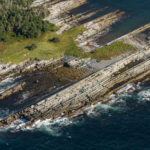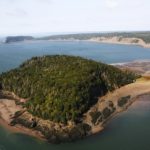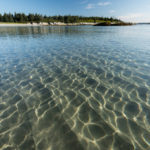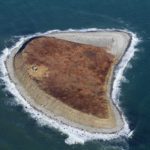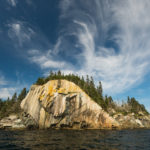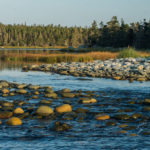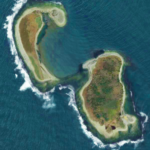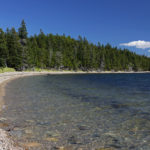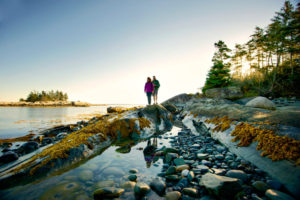Advancing Coastal Island Protection and Stewardship
19 May 2021
With thousands of islands along Nova Scotia’s coast, identifying which islands are in most need of protection and stewardship can be challenging. As part of our commitment to advance island conservation, the Nature Trust has been working with partner organizations to improve our collective understanding of coastal islands, identify priorities for protection, and work towards their collaborative stewardship.
The Nova Scotia coastline hosts a relatively large number and diversity of islands. Some of these islands together form well-defined archipelagoes associated with some of the province’s larger bays and exposed headlands, while others constitute more isolated features at varying distances from shore. The Nova Scotia Nature Trust has a long history of working to protect these unique components of our natural heritage and, along with our conservation partners, has been successful in advancing the protection of islands throughout the province. The collection of coastal islands that are protected by the Nature Trust extend from the southwestern tip of the province, along the south shore, eastern shore, Bras d’Or Lake, and to northern Cape Breton.
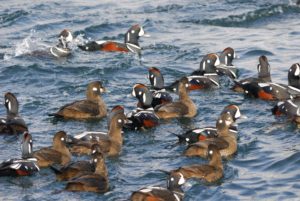
Harlequin Ducks, a species at risk bird whose habitat is protected in Seal Island (Photo credit: Scott Leslie)
So, what is unique about coastal islands? In addition to the benefits they offer to humans, many of the province’s more isolated islands offer reliable breeding sites for marine birds, specifically for seabirds and waterfowl, because predators are not present as much as they are in similar habitat at mainland and peninsular locations. They also provide important habitat for other wildlife, including breeding boreal songbirds, migrating birds, and overwintering waterbirds.
Unfortunately, climate change, development pressures, and the spread of invasive and problematic species are increasingly threatening the condition of coastal islands and associated biodiversity. Greater protection and collaborative stewardship are recognized as important strategies for facilitating the long-term health and functioning of coastal islands throughout the province.
With thousands of islands along Nova Scotia’s coast, identifying which islands are in most need of protection and stewardship can be challenging. As part of our commitment to advance island conservation, the Nature Trust has been working with partner organizations to improve our collective understanding of coastal islands, identify priorities for protection, and work towards their collaborative stewardship.
Along with federal and provincial governments and other environmental NGOs, we have recently completed a first version of a coastal island “prioritization toolkit” to help support decision-making related to coastal island conservation. The toolkit includes a geodatabase of spatial information and a summary of key attributes related to island condition, associated biodiversity, and pressures influencing their long-term function. Although intended as a product to support decision-making, development of the toolkit itself has been invaluable in facilitating greater dialogue and common understanding amongst those with a focus on island conservation, protected areas planning, and stewardship. Moving forward, we will continue to work collaboratively with other partner organizations to advance the conservation of these systems.
The Nature Trust would like to thank our partners with the Kespukwitk Conservation Collaborative for their support of the project; particularly members of the project’s technical team including the Nature Conservancy of Canada, Canadian Wildlife Service, the Protected Areas Branch of NS Environment and Climate Change, and the Wildlife Division of the NS Department of Lands and Forestry. The Project was supported by the Southwest Nova Scotia Priority Place Fund, administered by the Wildlife Division of NS Department of Lands and Forestry, and Environment and Climate Change Canada – Canadian Wildlife Service.

